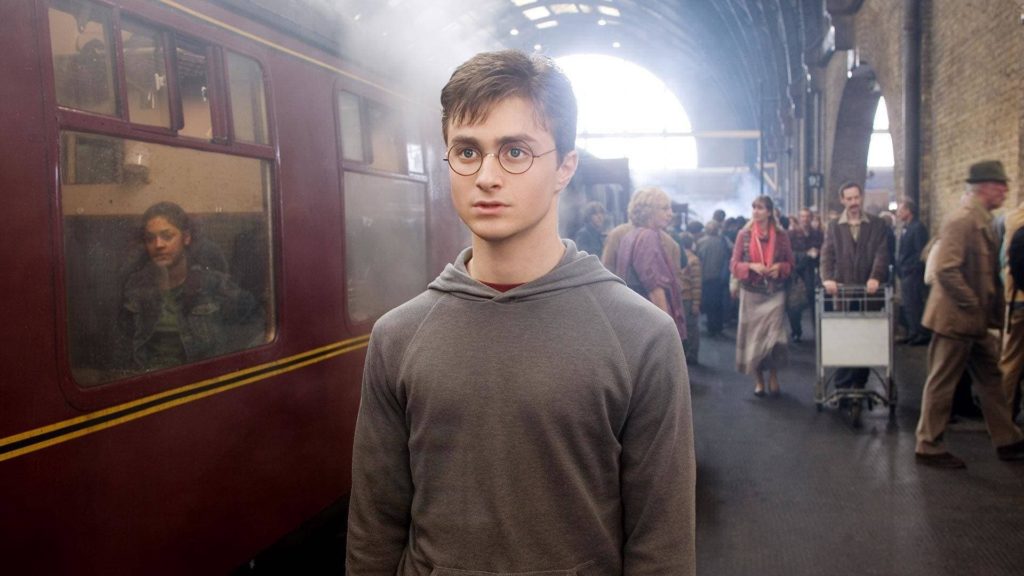Harry Potter and the Teenage Angst
One of the chief problems of the previous Harry Potter movie, Goblet of Fire, is that it took two thirds of the movie for the movie to find a theme for Harry’s character growth (beyond “clueless teen” and “Wizard Olympics participant”).
Order of the Phoenix corrects this problem out of the gate — if anything, Harry’s story is buried in too many themes: He grapples with grief, isolation, paranoia, and a growing disconnection and resentment of the less-burdened people in his life.
Meanwhile, the institutions that previously protected Harry — Hogwarts, the Ministry of Magic, even Dumbledore — have turned against him or abandoned him.
All of this accompanies a series of increasingly dark dreams and visions. It adds up to a gnawing sense that Harry is becoming the very thing he seeks to defeat, a pariah who can’t process reality and is capable of violence. It’s somewhat familiar ground for the series — Chamber of Secrets also probed parallels between Harry and Voldemort — but the sense of slipping morality in a dishonest world is so tangible, the atmosphere so dangerous, that it hits harder than ever.

Order of the Phoenix is perhaps the moodiest Harry Potter film (except Deathly Hallows, Part 1). David Yates, who would become the steward of the second half of this series, immediately imprints his own style, an evolution of the color schema used by Alfonso Cuaron and Mike Newell but steelier and more shadowy. His teals, blacks, and whites are starkly contrasted by the Pepto Bismol pinks of Professor Umbridge.
The Order of the Phoenix book is even longer than Goblet of Fire, a gargantuan 257,000 words across nearly 900 pages. But Yates, with adapter Michael Goldenberg (in his lone writing credit in the series) do an exceptionally good job streamlining the material, the best besides Prisoner of Azkaban.
Harry finds himself at various crossroads throughout the film. (You can say the same of just about any of the films, I suppose.) He’s not just a confused kid; he now provides a leadership role. His choices about bucking authority and forging his own path are more explicit as he founds “Dumbledore’s Army” (one of my favorite threads in the entire series) and battles crosswinds both evil and institutional (and, sometimes, both).
The acting is the best yet in the series. For one, Daniel Radcliffe is now a strength more than a weakness. Imelda Staunton is instantly iconic as Dolores Umbridge; Ralph Fiennes gets more to do than ever as Voldemort; and Helena Bonham Carter makes her first appearance as Bellatrix Lestrange. All three are delightful jolts of villainy.
It’s not for all tastes; it’s certainly on the dour side for the series. But Order of the Phoenix is one of the richest and most memorable entries in the Harry Potter franchise.
- Review Series: Top 100 (2009 List)
Is It Good?
Very Good (6/8)
Awards, Honors, & Rankings
Dan is the founder and head critic of The Goods. Follow Dan on Letterboxd. Join the Discord for updates and discussion.

